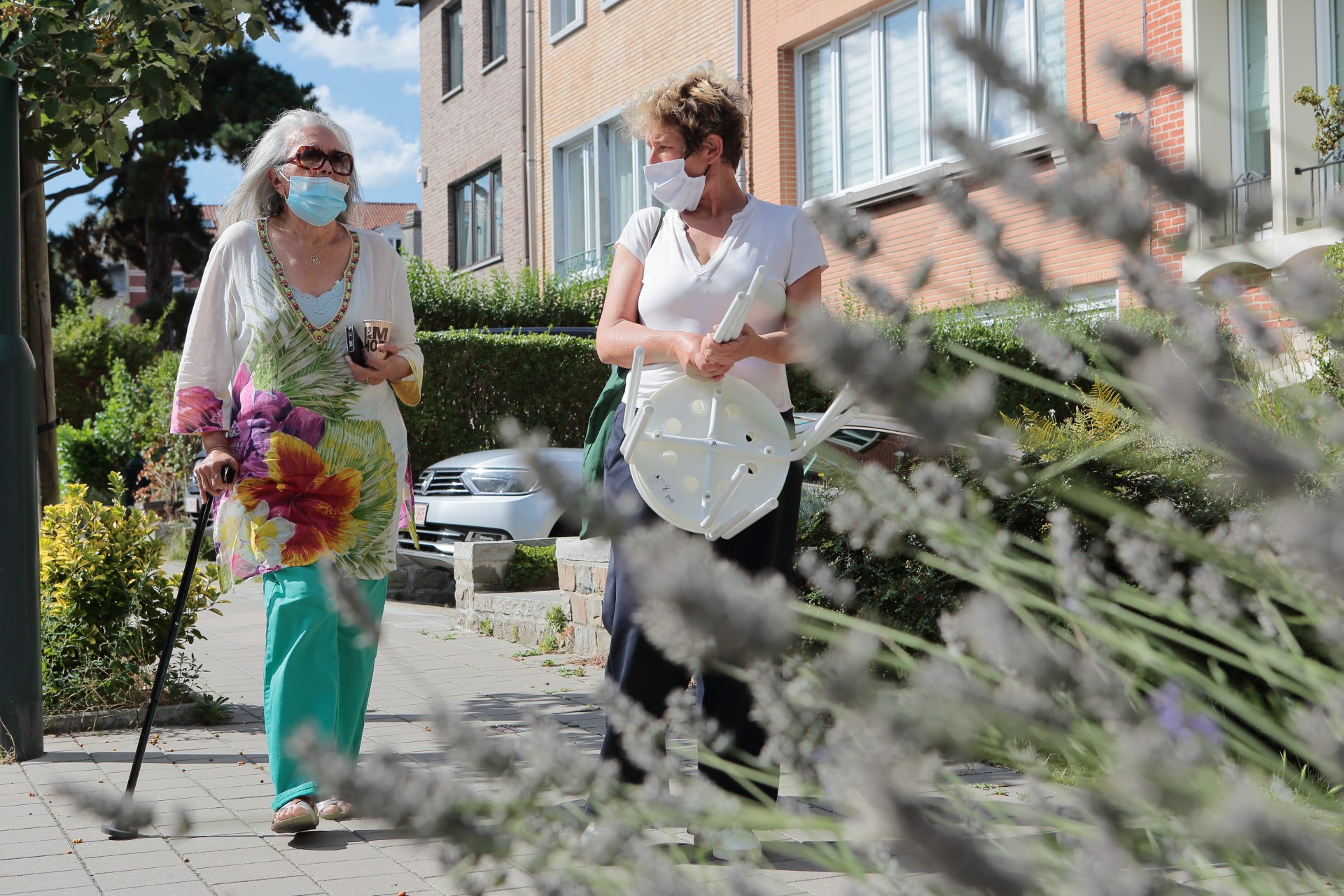Let’s stop playing the Covid-19 generation blame game

Photo by Bruno Achen for Bras Dessus Bras Dessous. This blog was originally published in Euractiv.
A joint blogpost by the European Youth Forum and AGE Platform Europe.
As if dealing with a pandemic wasn’t enough, from the very outbreak of Covid-19, institutions, political leaders, social and traditional media alike seem to have used the pandemic to pit one generation against the other. Young people are being depicted as reckless, careless, or simply unbothered by the pandemic. Older people are being labelled as vulnerable, useless and in need of protection.
But is this the whole story? This oversimplification is not only unfair, but also damaging. Framing older people as the only group at serious risk, conceals the fact that this pandemic is affecting many vulnerable young people too; those who have underlying conditions and for whom Covid-19 represents a very tangible threat. It also denies the reality of older people, whose role in society encompasses far more than simply surviving and who deserve their lives to be protected.
Pinning generations against one another is nothing new. Young vs old; millennials vs boomers; buying avocados vs getting a mortgage – the blame game has been going on for a long time. In the context of this crisis, however, the visible stereotyping of generations and discriminatory attitudes are even more striking.
From a so-called corona tax on older persons, to hate speech and ageist comments in the media as well as age-specific measures by some European countries, ageism has very much been part of the conversation. And it affects both young and older people.
The “every generation for itself” mentality that has been perpetuated in recent months, seriously overlooks many of the similar struggles both young and old face in lockdown. Many older persons living alone or in residential care settings, especially those less familiar with digital skills, have felt isolated, neglected, leading in the most serious cases to health deterioration or abuse. According to Eurofound, young people report the lowest level of well-being, and remain the group most at risk of depression. Aside from the immediate impact of the pandemic, both age groups, in very similar ways, risk being affected by the long term consequences of this crisis for years to come.
In contrast to the mainstream narrative, we’ve seen an incredible surge of solidarity from all parts of society. From young people and youth organisations providing support to the most vulnerable in their community (e.g. by delivering groceries; setting up hospitals), to health professionals and people engaged in emergency services delaying retirement or going back to work in order to help during this public health emergency. When it comes to behaviour to counter the spread of the virus, such as washing hands, wearing a mask, and avoiding being in groups, statistics show that the differences in attitudes and actions between age groups are minimal. Just a few indications that taking Covid-19 and the responsibility to protect others seriously is not a question of age.
As Europe enters into a second wave of this devastating virus, it’s important to remember that we all are in this together. As cliché as it may sound, we all have a part to play in overcoming the spread of infection and looking after each other. This means rather than scapegoating certain generations, we need to value people of all ages.
On a very individual level, ageism risks negatively impacting our self-esteem, our sense of agency, our mental and physical health, and ultimately our rights. Ageism is particularly threatening those who are already vulnerable due to ill health, precarious socioeconomic conditions, or at risk of multiple discrimination. On a policy level, ageism blinds us from seeing how we can best support each other, at a time when urgent action is needed to safeguard and support both age groups.
After all, sooner or later this pandemic will be over, and we’ll be left with dealing with the aftermath: new waves of unemployment for young and older people; less public revenues due to a new economic crisis; threats to social protection and health care systems that cater for all of us – young and old alike – in times when we are most in need.
Ultimately, we all grow up, we all try to find a way into the labour market, we all carry the inequalities we faced in our lifetime with us into old age. We must therefore take the recovery period from this pandemic as an opportunity to make sure that policy responses are based on a sound generational contract rather than a race to the bottom between age groups.
By allowing people of all ages to play their part in this recovery, we can rebuild our society on stronger foundations. Paying attention and responding to the persistent, detrimental ageism that affects so many, must be the first step towards ensuring that human rights apply equally for people of all ages. Because whether we are living in times of crisis or not, we all age, and we all hope to do it in dignity.
Read also:
Younger People and Ageism during Covid-19
“If you seek to prevent us from growing old free to choose, you will force us to become outlawed”
Trying (And Probably Failing) To Make Sense Of Ageism In The Midst Of COVID-19
—
The European Youth Forum (www.youthforum.org) is the platform organisation advocating for youth rights in Europe. AGE Platform Europe (age-platform.eu) is the European network defending older people’s rights in Europe.


Facebook Comments